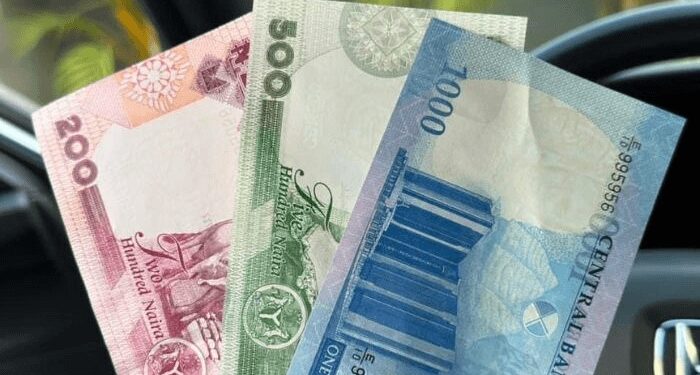Nigeria’s currency outside the banking system has soared to an all-time high of N4.2 trillion as of October 2024, despite several monetary policies aimed at curbing cash circulation. This is according to recent data released by the Central Bank of Nigeria (CBN).
The increase highlights a significant rise in cash held outside formal banking channels, a trend that began after the reversal of the controversial cash policy implemented by the previous administration. The current figures represent a stark contrast to the N792 billion recorded in January 2023 when the government introduced new naira notes and phased out older currencies.
Steady Rise in Cash Circulation
Data indicates that total currency outside banks climbed from N4 trillion in September 2024 to N4.2 trillion in October 2024. Similarly, the total currency in circulation grew to N4.5 trillion in October, up from N4.3 trillion the previous month.
To clarify:
- Currency outside banks refers to cash held by individuals, businesses, and other entities that is not stored within banks.
- Currency in circulation includes both cash held outside the banks and cash stored within banks as vault cash.
The broader money supply stood at N107.6 trillion in October, slightly lower than the N109.4 trillion reported in September.
Impact of Monetary Policies
The rising cash outside the banking system appears to undermine the CBN’s hawkish monetary stance. At its September 2024 Monetary Policy Committee (MPC) meeting, the CBN increased the Cash Reserve Ratio (CRR) for Deposit Money Banks by 500 basis points (from 45% to 50%) and for Merchant Banks by 200 basis points (from 14% to 16%).
These measures were intended to tighten liquidity and limit cash in circulation. However, the data suggests that despite these policies, cash remains widely available outside the banking system, potentially fueling inflation, which has remained high throughout the year.
POS Operators Dominate Cash Supply
Amid the surge in currency outside banks, Point of Sale (POS) operators have become the dominant channel for cash withdrawals, overshadowing Automated Teller Machines (ATMs).
While ATMs frequently display “no cash available” notices or remain non-functional, Nigerians are increasingly forced to rely on POS agents. These operators often charge high transaction fees, ranging between 5% to 10% of the withdrawal amount.
The situation has led to growing frustration among citizens, as accessing cash becomes both expensive and inconvenient. Long queues at ATMs remain a common sight, with many blaming alleged collusion between banks and POS operators.
Reports on social media indicate that some banks may prioritize supplying cash to POS agents, who then impose exorbitant charges on withdrawals. This practice has sparked widespread calls for regulatory intervention to ensure fair access to cash and address exploitative activities within the system.
Public Outcry and Calls for Action
The dominance of POS operators and the continued surge in currency outside banks have raised concerns about the effectiveness of current monetary policies. Critics argue that regulatory bodies must step in to monitor cash distribution and enforce measures that restore public confidence in formal banking channels.
Without prompt intervention, Nigerians may continue to face rising transaction costs and unequal access to cash, further complicating the country’s economic landscape.










